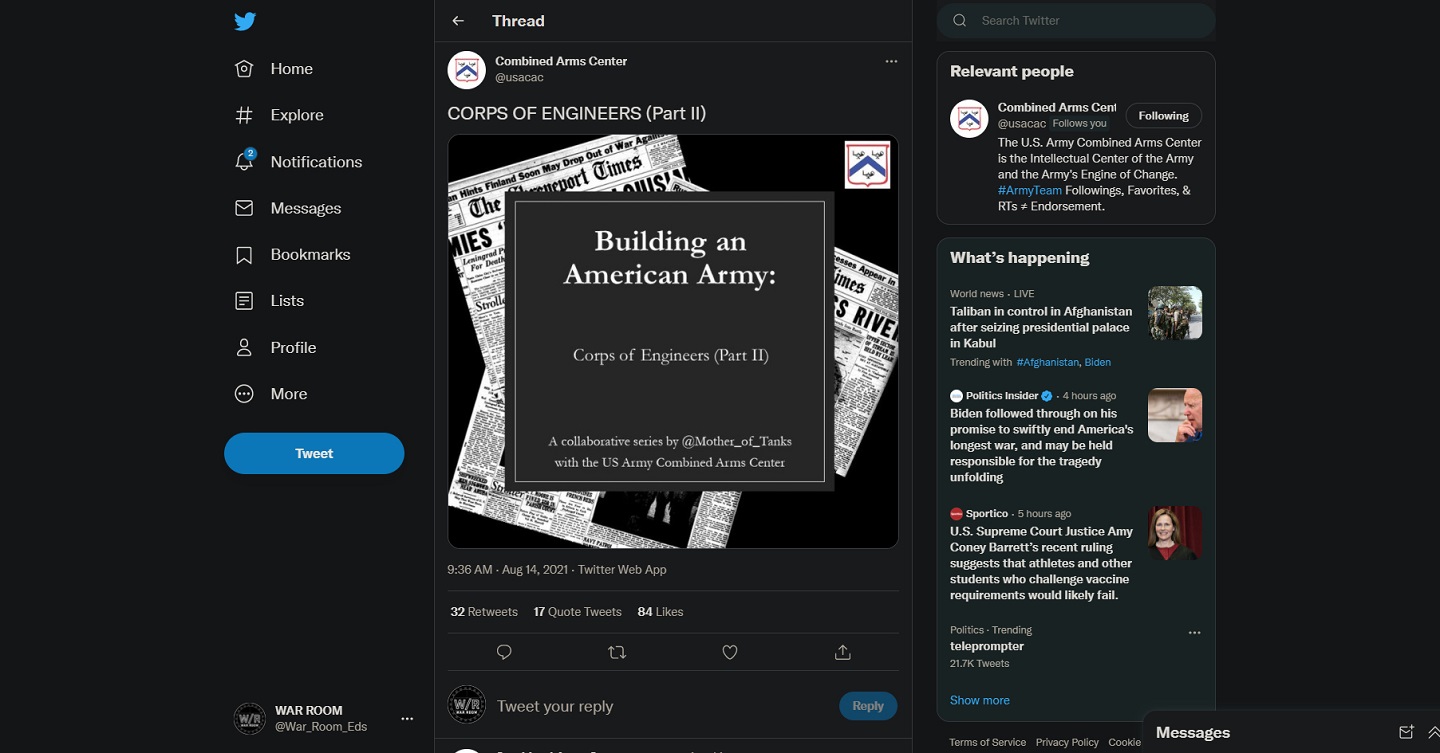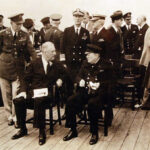
Storytelling is as old as humankind. Long before there was the written word, humans told their stories through spoken word, songs and drawings. It was how we passed on our history, our culture and our shared experiences. We’ve progressed technologically from the original cave drawings and humanity finds new ways everyday to use technology to tell our stories. A BETTER PEACE welcomes Sasha Maggio to the virtual studio to share her medium of choice, Twitter, where she is telling the stories of the U.S. Army. Sasha joins our Editor-in-Chief, Jacqueline Whitt, to discuss how she uses the long thread format to relay the history of the Army in a way that is enjoyable, engaging and sometimes amusing to an audience that may not have been previously interested.
But if you want to actually reach your broadest audience, you need to understand that the content that you’re putting out has to adapt to each platform, and you can use the same type of storytelling but you have to just adjust it for each.
Podcast: Download

Sasha Maggio is an Army contractor working at the Mission Command Training Program and works in the Scenario Design Division. She also tweets and her Twitter handle is @Mother_of_Tanks or you can find her website at www.motheroftanks.com
Jacqueline E. Whitt is an Associate Professor of Strategy at the U.S. Army War College and the Editor-in-Chief of WAR ROOM.
The views expressed in this presentation are those of the speakers and do not necessarily reflect those of the U.S. Army War College, U.S. Army, or Department of Defense.
Photo Description: Screen capture of the current effort of @Mother_of_Tanks storytelling journey.
Photo Credit: Twitter





Regarding such things as the nexus between strategy and narrative today, the problem would seem to be in finding a way to:
a. Make necessary political, economic, social and/or value progress or change (for example, as relates to such things as promoting “diversity, inclusion and equity”); this, so as to better provide for and better benefit from such things as capitalism, globalization and the global economy) — how to make these such changes:
b. As attractive as — or more attractive than — maintaining the status quo or going backwards.
From a “storytelling” point-of-view, thus, someone and some agency (maybe even Ms. Sasha Maggio and the Combined Arms Center itself?) must take on this challenge and produce a series which:
a. Highlights how our pursuit of political, economic, social and/or value progress and change in the past (if possible, as relates specifically to such things as “diversity, inclusion and equity”); how this:
b. Caused the U.S./the West to get far ahead of our more “backwards” competitors (to wit: those states and societies who clung to — and/or who returned to — a more traditional/a more conservative agenda and stance.)
As a “negative” case-in-point from the past; one which may help illustrate the folly of the strategy I indicate at my item “b” immediately above, consider the following from U.S./Western history re: Andrew Jackson:
“Jacksonians drew their support from Northern laborers and yeoman farmers in the South and in the West. These groups, which Jackson dubbed the ‘bone and sinew of America,’ worried that the market economy would force them into the dependent class. The Jacksonians told the farmers and the laborers that they would do everything in their power to prevent this from taking place. In essence, the men and their rank and file voting allies, along with Jackson, fought a rear-guard action against encroaching industrialization and market economy. Although they won the pivotal battles, they lost the war, because their notion of a pre-capitalist agrarian society succumbed to the industrial economy after the Civil War.”
(See the ‘Encyclopedia of U.S. Political History’ by Andrew Robertson, et al., and the section therein entitled ‘Jacksonian Democracy,’ Page 194.)”
Bottom Line Thought — Based on the Above:
Today, various states and societies, both in the developed and the developing world, and much like the Jacksonians above — are also “fighting a rear-guard action” — in this case — against the changes now demanded by the information economy.
While this is certainly understandable (much as it was in Andrew Jackson’s day above), what our current “narrative” must do — in the face of this such challenge — is to show how bad and futile these such status quo and/backwards-looking endeavors actually are (herein, possibly using even my Andrew Jackson example above).
However, positive examples re: necessary change must also be presented; that is, examples of how
a. Embracing necessary political, economic, social and/or value change (herein, specific examples relating to such things as “diversity, inclusion and equity would be best)
b. Benefited, provided for and protected our nation in the past.
These positive and negative accounts, re: necessary “change” I suggest, are the “stories” that we so desperately need to hear today.